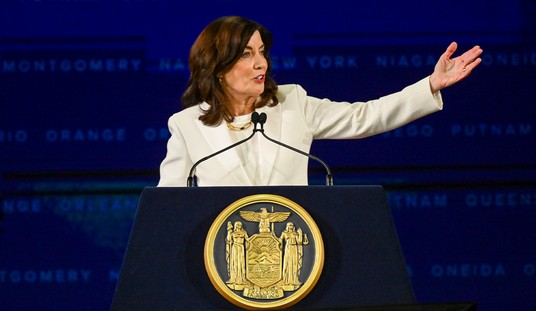With fill-ups routinely costing $60 or more, cost-conscious drivers naturally look for someone to blame. And just as naturally, politicians are happy to blame others.
Enter “Big Oil,” the demagogues’ favorite villain. Gas prices soaring? It’s because oil companies want “excess profits,” as Barack Obama puts it. Right?
Wrong. The truth is more complicated.
Let’s look to California, driving capital of the world. Officials there watch gas prices carefully. During March and April, a state analysis found that “distribution costs, marketing costs and profits” made up about 10 cents of the cost of a gallon of gasoline, which ranged from $3.46 to $3.89. Notice that that dime is less than 3 percent of the total retail cost, and profits account for only part of it. So those “excess profits” are actually well below 3 percent of retail costs.
Of course, that’s little comfort to tapped-out drivers. And the big oil companies are certainly making big money -- Exxon Mobil alone earned $40.6 billion last year. But such profits follow naturally when a company sells a product that so many people want to buy. Some recent history offers us a bit of perspective.
In 1998, a recession in Asia created an oil glut. Prices plunged to historic lows (near $10 a barrel), and American drivers reaped the benefits, with gas dipping below $1 per gallon. So how did Exxon fare in those days of low prices?
Recommended
According to Forbes magazine, Exxon earned more in profits than any other American company in 1998. Sales increased 3 percent over 1997 and profits jumped 12.6 percent, to $8.4 billion. Again, remember: Oil was remarkably cheap that year, yet Exxon earned double-digit profits. Few complained then.
The lesson is simple: When a company sells a product people want, it tends to make money, in good times and in bad. For years, oil has remained a product that Americans want -- and today’s high prices have done little to change that.
(Full disclosure: Yes, “big oil” gave to The Heritage Foundation last year. Their combined donations accounted for one-quarter of 1 percent of our revenues.)
It’s also worth noting that oil companies are probably the most investigated companies in America. Every few years, outraged legislators demand that the Federal Trade Commission determine whether oil companies are colluding to inflate prices. Repeatedly, federal regulators find that they aren’t.
A few months ago the FTC said this about high gas prices: “All of the increase can be attributed to increased crude oil costs, because gasoline inventories are as ample as they have been for several years, gasoline consumption is declining to a near-record extent, and refining margins -- the difference between the cost of crude oil and the wholesale price of gasoline -- have fallen.”
So who’s making the big money? The countries that produce crude oil. Crude represents more than half of the cost of each gallon of gasoline sold. Federal, state and local taxes represent another fifth.
Yet some insist we punish “big oil.” During one presidential debate, Hillary Clinton announced that “the oil companies reported the highest profits in the history of the world. I want to take those profits, and I want to put them into a strategic energy fund.”
But confiscating oil company profits is a lousy idea. Profits are what keep them in business. It allows them to invest in refining and delivery systems, and search for new deposits of petroleum. Profits fuel our capitalist system as surely as petroleum fuels our national economy. Plus, “big oil” returns billions to stockholders through dividends, and millions of Americans own its stock through their mutual funds and 401(k)s.
The best way to cut prices in the long run would be to increase supplies. Policymakers could help do this if they would allow drilling off-shore and in a tiny section of Alaska’s barren Artic National Wildlife Refuge.
It makes no sense to keep so much domestic oil off-limits, especially with prices climbing. As long as we do it, we’ll pay more than we need to for each gallon of gasoline and keep sending big profits overseas. Let’s stop stalling -- and start drilling.






















Join the conversation as a VIP Member